
Intel’s vision for the future of mobile computing isn’t a single vision; instead it’s a multiplicity of visions encompassing very low powered computing, wearable computing and alternative power sources. Additionally, it’s possible to get water out of frogs.
Dr Genevieve Bell runs Intel’s Interaction and Experience Research; she’s an Australian anthropologist who unashamedly is interested in people. “If I had my way, we’d talk about people all the time” was the concluding note of her keynote address that marked the concluding day of the Intel Developer Forum in San Francisco. Dr Bell’s talk was titled “Seven billion mobile futures, and counting…”, and that’s largely because she’s convinced that a single monolithic model of mobile computing isn’t what’s going to happen. People are more complex and interesting than that.
According to Doctor Bell, there’s a temptation to think about technology being mobile as a new phenomenon, whereas from her perspective “There’s been mobile tech for hundreds of years. The Aboriginal people who raised me had boomerangs, other cultures swords and spears. We’ve put technology on our bodies to make ourselves better.”
Studying this technology and how humans use it is a difficult thing, though, because it’s not just about the underlying technology. Bell used the example of texting while driving. It’s not safe or sensible, but their research across the globe suggests it happens an awful lot; in a separate session after the keynote Dr Jennifer Healey, one of Intel’s research scientists and a member of Dr Bell’s team noted that people are on social networks at 70kph. Or, in according to Dr Bell. “What we say we’re doing and what we’re actually doing are completely different things.”
In terms of the future of mobile technology, Dr Bell is reluctant to simply think of the future as shiny technology in shiny spaces “because I think the future is more complex than that. There are many mobile futures.”
This was the cue for Intel to show off the work being done in its research labs, and by partner companies, including a bike jacket from Berlin’s Fraunhofer Institute for Reliability and Microintegration that has flexible accelerometers that also work as safety lights.
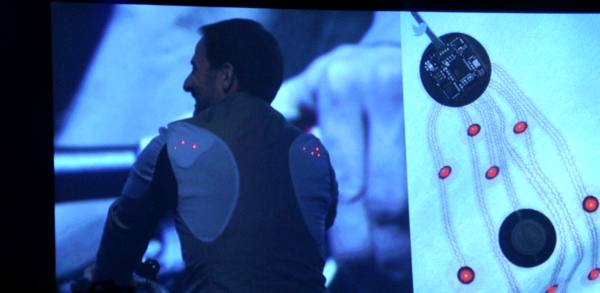
A research prototype using dual-screen laptops to create a “social environment” in public spaces where people communicate (or, I suspect, advertise) externally while working internally.
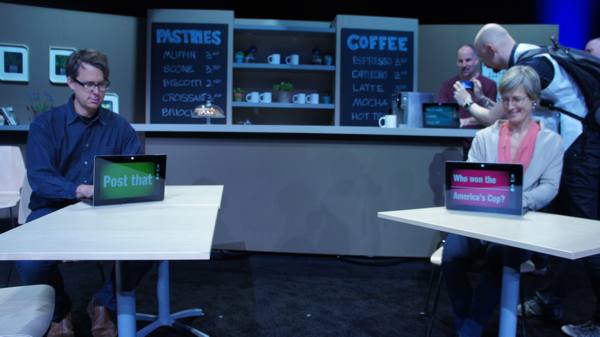
Dr Bell’s contention is that people want technology that is personal, unburdened, in the flow and allows our best selves to emerge — or really, technology that’s as much to do with humanity as it is the technology itself.
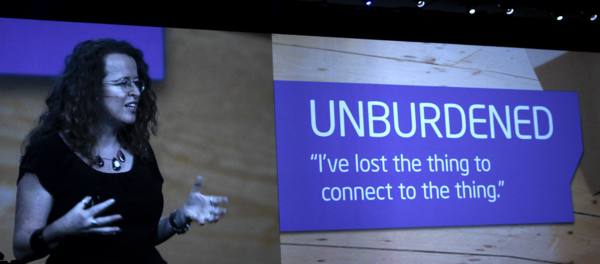
In more detail, personal technology should be truly personal, in that it “understands and knows them”. Unburdened in that it doesn’t require complex connections, whether that’s a specific charging dongle or a password. In the flow, because technology often interrupts us.

All of this requires a lot of iterative innovation, from developing systems that use only micro-watts of power — which is where the demo showing wine being used to power a tablet came from; this prompted Dr Bell to quip that “some people turn water into wine. We’ve turned wine into power.”
Another demonstration highlighted using sensors built into mobile phones to identify both users and locations from voice and walking patterns. The idea here is that if you walk with your phone it’ll know that it’s you, but somebody else would be locked, and at the same time, if you had a social network with that kind of system, it could identify when you’re in the same environment for interactive purposes as well.
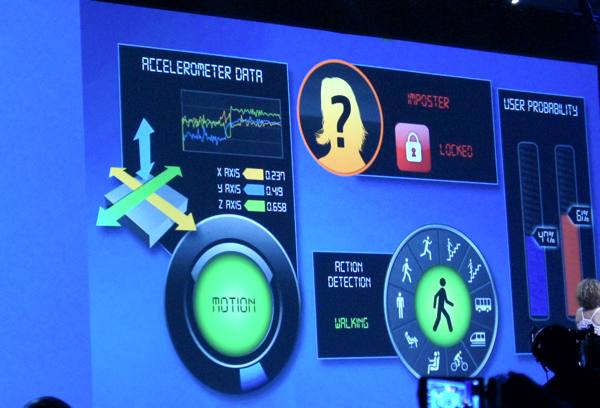
Finally — and probably of most interest to the audience, although it’s still only a research project — was a tool Intel’s developing to give a social and security scorecard for privacy.
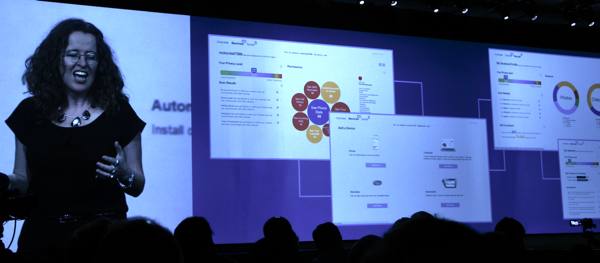
She’s also — and this was only mentioned in passing — a woman who knows how to get water out of a frog. That piqued my interest, so I followed up on it, and apparently, it’s “easy peesy … just squeeze it. 2 caveats — this DOES NOT work on all frogs,& and the frog usually doesn’t make it.”
Disclaimer: Alex Kidman travelled to San Francisco as a guest of Intel.